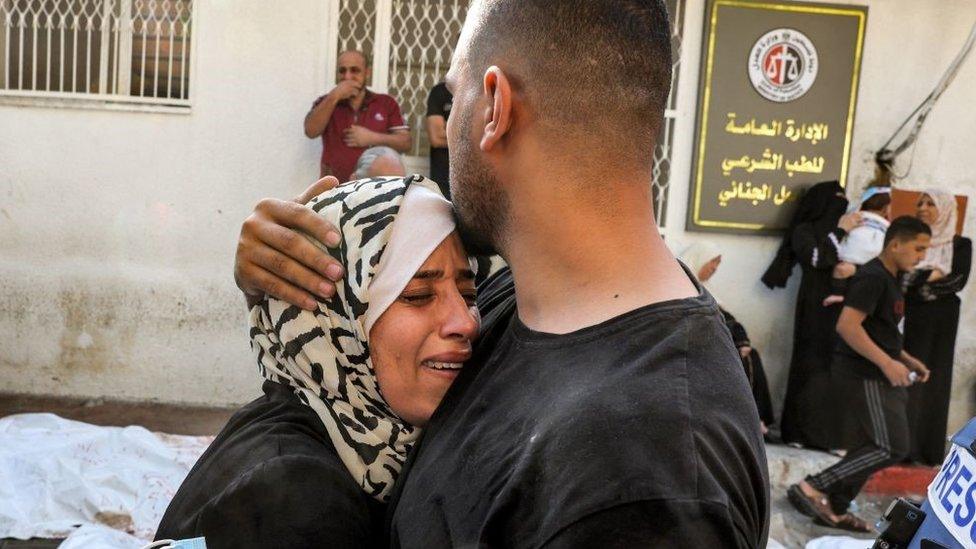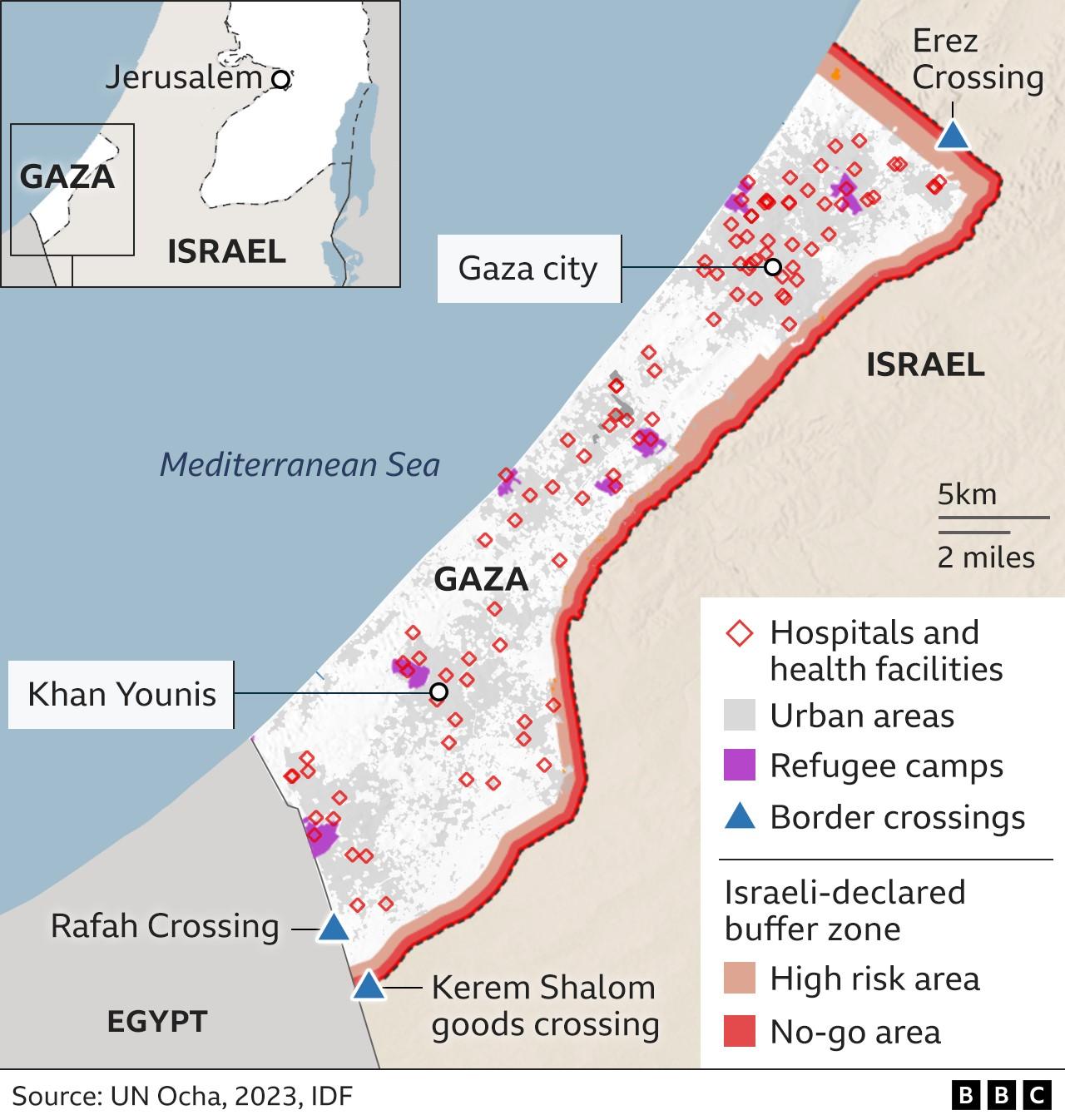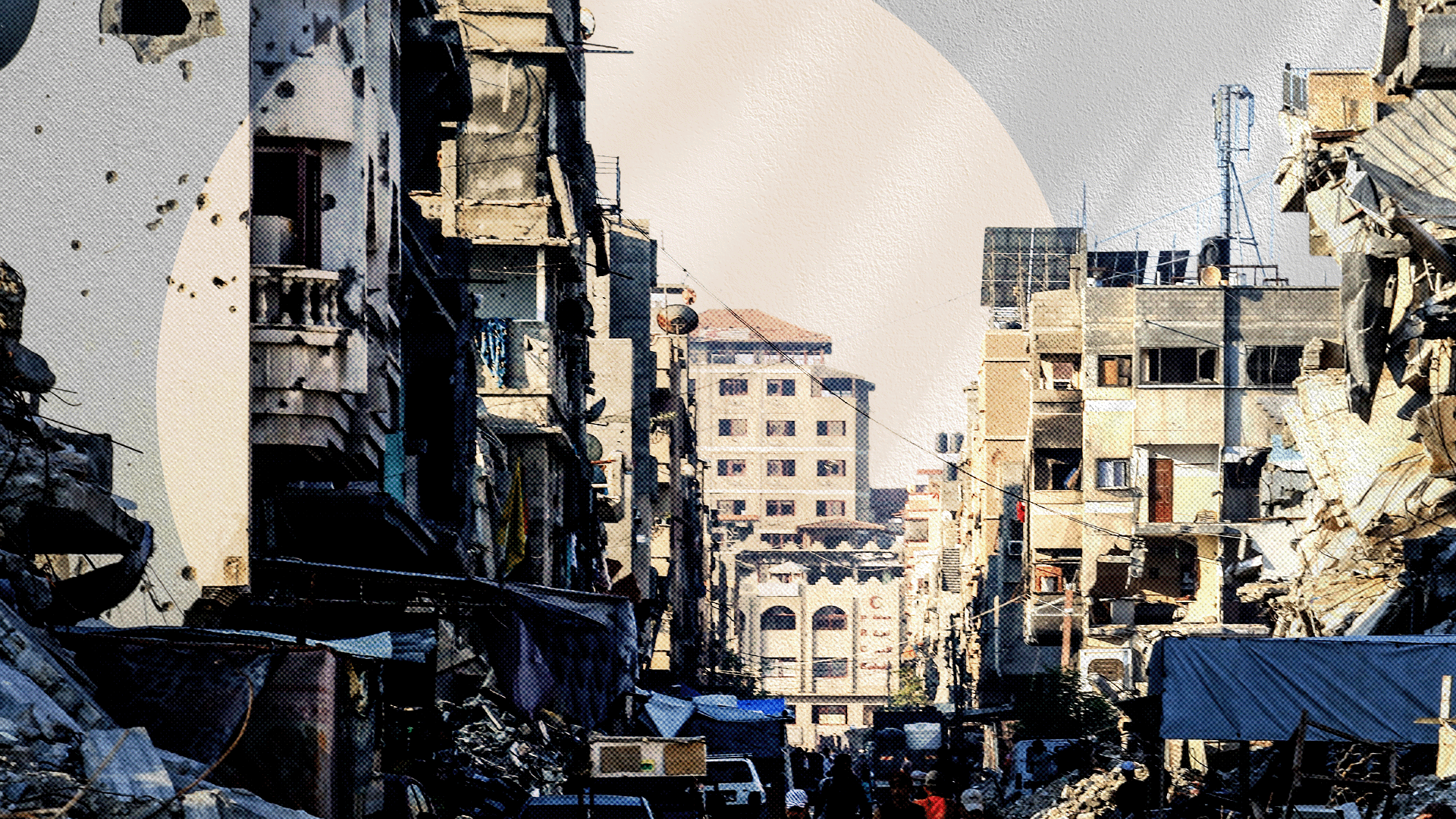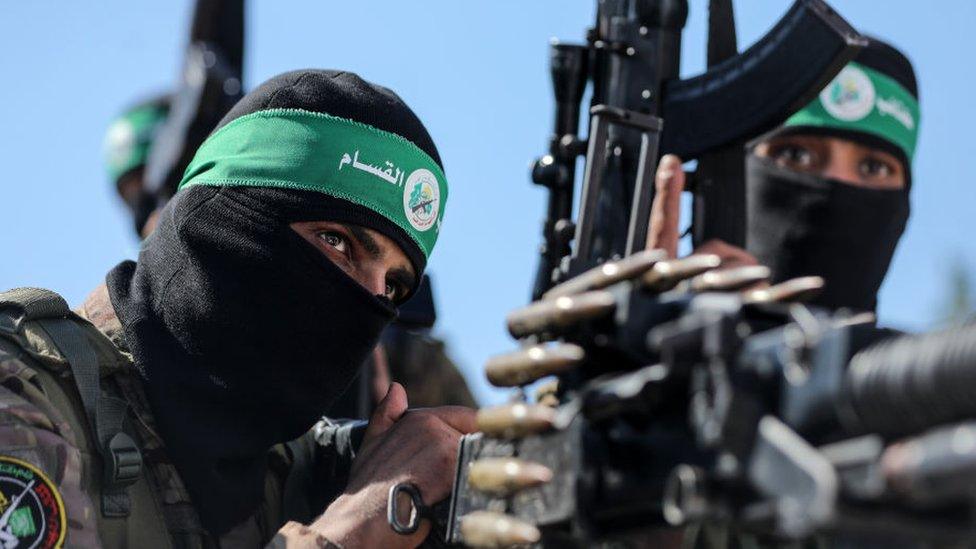Gaza hospitals risk turning into morgues, Red Cross says
- Published

Hospitals in Gaza are completely overwhelmed
Hospitals in Gaza risk turning into morgues without electricity, the International Committee of the Red Cross (ICRC) says.
Gaza's only power plant ran out of fuel on Wednesday, and back-up generators could stop working in hours, it adds.
Medical centres have been overwhelmed after Israel imposed a "complete siege" on Gaza and pounded the territory with air and artillery strikes.
Hamas launched an unprecedented attack on southern Israel on Saturday.
Israel has vowed not to restore electricity or allow basic resources and humanitarian aid into Gaza until Hamas releases around 150 hostages it abducted during its attacks on Saturday.
"As Gaza loses power, hospitals lose power, putting newborns in incubators and elderly patients on oxygen at risk. Kidney dialysis stops, and X-rays can't be taken," said Fabrizio Carboni, the ICRC's director for the region.
"Without electricity, hospitals risk turning into morgues."
He added that hospitals were still running on generators - but fuel would only last "for a few hours".

More on Israel Gaza war
History behind the story: The Israel-Palestinian conflict
Kibbutz massacre: Father saves daughter he had not seen in years

Hospitals in Gaza are seeing long queues outside, with injured people waiting for emergency rooms. They are running out of essential medical equipment and appealing for blood donations.
Children - some seriously wounded - are lying in hospital beds crying, waiting for treatment.
The largest public healthcare complex in the Gaza Strip, the Al-Shifa Hospital, is "overloaded", a doctor there told the BBC.
"We can hardly manage dealing with the patients", said Dr Mohamad Matar.
Doctors are now having to make tough decisions on who to operate on, as fuel supplies run critically low. Doctors say only life-saving treatment is being carried out in many cases.
The absence of humanitarian corridors is resulting in unprecedented problems for hospitals. In previous wars, the ICRC and UN were able to secure corridors to deliver aid but Israel has not yet allowed for this.
The main option being considered, the ICRC says, is the Rafah crossing between Gaza and Egypt.
Palestinian Prime Minister Mohammad Shtayyeh said on Thursday that his government was working with Egypt to open corridors for humanitarian aid.
"Closing all access to the Gaza Strip and preventing aid is a mass killing of our people," he said.
Egypt says it has been trying to arrange aid deliveries through the Rafah crossing, but this has been made difficult by Israeli bombardment in the territory.
Those air strikes have meant people are also filling up hospitals to shelter, believing they are safer there than other parts of Gaza.
Dr Justin Dalby, who has been working in Gaza for six months with the humanitarian charity Médecins Sans Frontières (MSF) told the BBC that the number of injured was "just absolutely immense".
He said there was "constant violence" as "destruction continues everywhere ... day or night".
"If you are taking out the electricity supply of a hospital, it means that lights go off. Monitoring equipment, oxygen delivery, mechanical ventilators, operating theatres and surgical equipment that require electricity will no longer be able to function," he said.

Hamas took about 150 Israeli hostages into Gaza during its deadly attacks on southern Israel at the weekend that killed at least 1,300 people.
Israel's Energy Minister Israel Katz said "no electrical switch will be turned on, no water hydrant will be opened and no fuel truck will enter" until the "abductees" are free.
Israel stopped supplies to the Gaza Strip after the Hamas attacks on Saturday.
More than 1,300 people have been killed in Gaza since Israel launched its air strikes on Saturday, according to the Palestinian Health Ministry. A further 5,339 have been injured.
Meanwhile, the UN agency for Palestinian refugees says more than 338,000 people have been displaced, with most sheltering in hospitals and UN schools.
"The human misery caused by this escalation is abhorrent, and I implore the sides to reduce the suffering of civilians," Mr Carboni of the ICRC said.
Watch: Drone footage shows the aftermath of Israeli airstrikes on Gaza
- Published16 January

